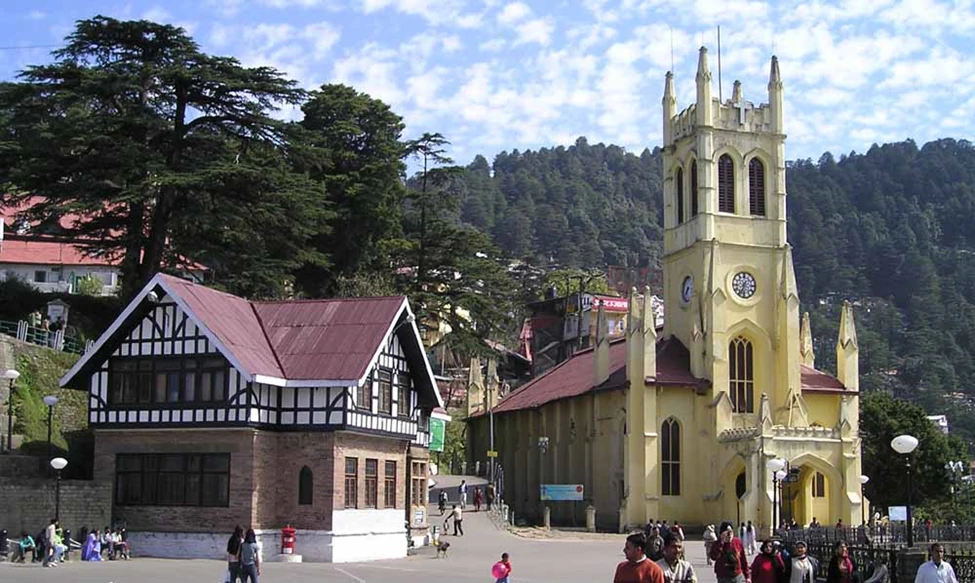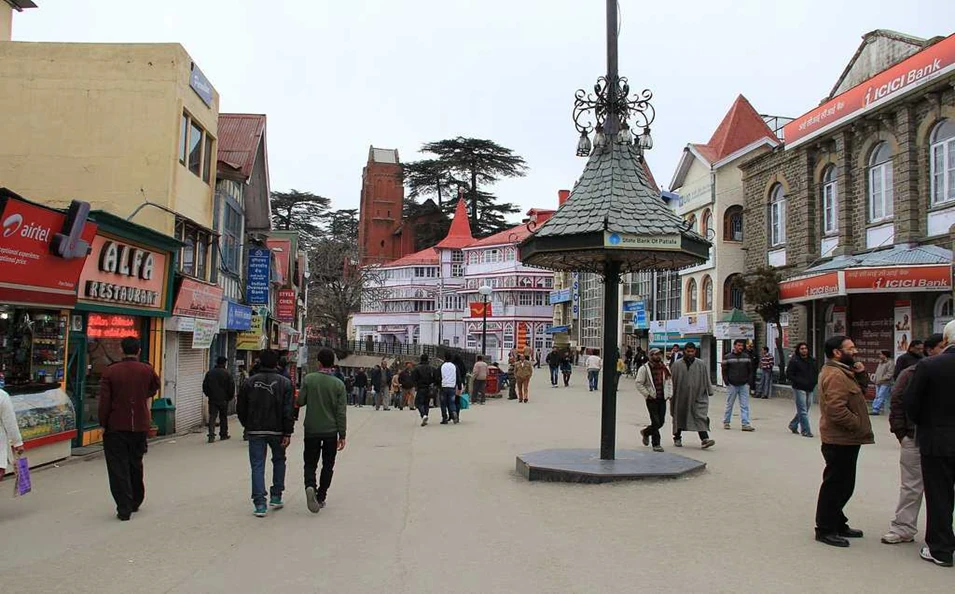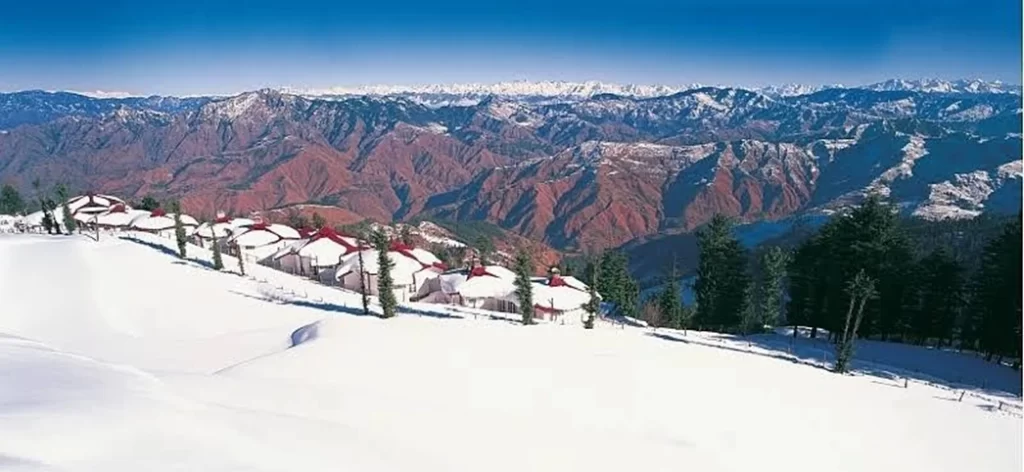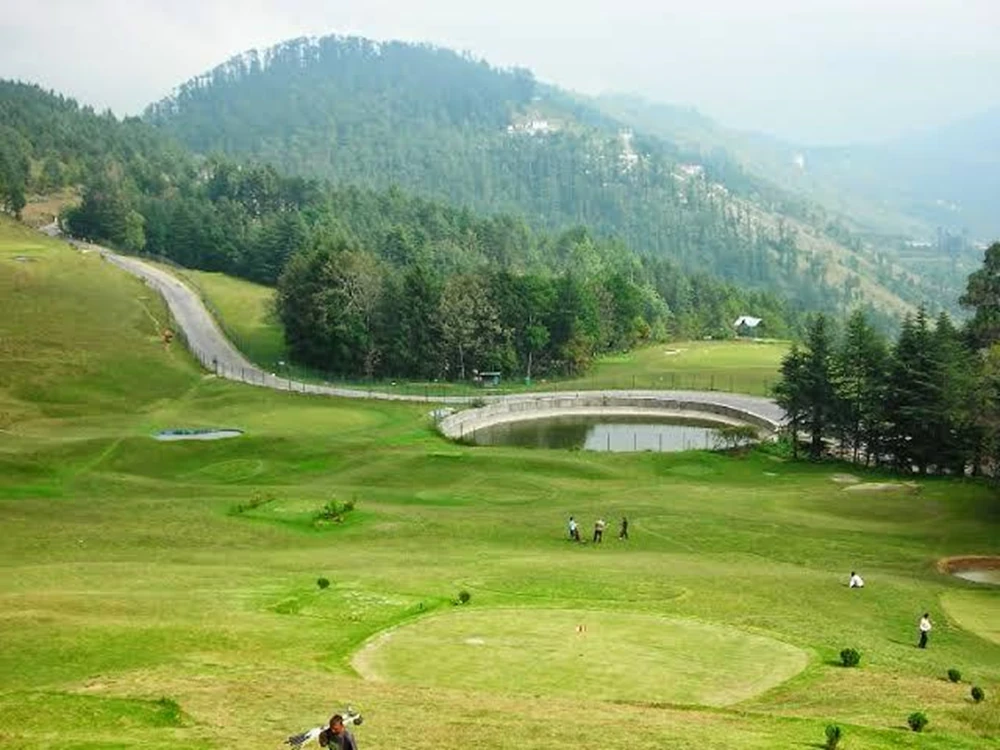Having passed out of the Indian Military Academy (IMA) in Dehradun, we headed for Mhow in Madhya Pradesh to receive basic training in the Corps of Signals. Our stay in Mhow was also very eventful. In the School of Signals, as it was then called, there never was a dull moment. Our dress code in the School was also very strange. In a sultry summer, we were expected to wear a lounge suit with a felt cap while going out of the School premises. We felt like a clown coming out of a Charlie Chaplin movie. Those officers, who were doing a course in the Infantry School nearby, had no such dress restrictions and would be moving around wearing T-shirts and jeans.
Mhow is basically an Army station where two major teaching institutions are located, now called College of Combat and Military College of Telecom Engineering. It is said that an officer normally visits this place at least 6-7 times during his entire service, attending some or the other courses out of the numerous courses that these two institutions run.
Mhow is a small town about 15 km from Indore. The climate is moderate, with mild summers. The landscape is marked by undulating countryside. Sitting on our verandah, we used to get a good view of the valley. The ground slopes down for about a km, then slowly rises and merges into the hills. After being barren for months during the summers, the whole valley acquires a lush green look as soon as the rains set in.

We studied map reading. Any object on the map, when shown on the ground, is given a nickname for ease of identification. Twin peaks in the mountain range were named Begam Para, after a famous actress of the time who was physically well endowed.
There are plenty of tourist places nearby, which makes staying in Mhow a pleasing and comfortable experience.
There never was any shortage of seniors who would try and give unsolicited advice on various service matters. Be it the dress code, the mess etiquette, or so on. If you did not wish a senior, you would be promptly admonished. Once, as we were walking from one classroom to another, the officer ahead of me would smartly move the cane from the right to the left hand, look towards the right, and salute. I also did the same but found no one to whom we were saluting. After a few steps, he again did the same, and I followed too, and again, there was no one.
When he did this the third time, I could not control myself and asked him what he was up to. His reply was, “The last time I was not wearing specs, I was ticked off by a senior officer for not saluting. Today also, I have forgotten to wear my specs and I do not want to take any chance.”
Another interesting incident that I cannot forget was one in which I was privy to. On a Sunday morning, a young officer was having a drink at the bar when Col. LP Sen, the Deputy Commandant, walked in. The officer had not seen him and did not know his identity. While ordering a second drink, he asked the barman Morris, a well-known personality in our Corps because of his impressive hander bar mustache. “Morris kya baat hai,aaj drink mein kuch kick nahi hai. Hearing this, Col. LP Sen turned around and said “Young man, have your drink now, kick you will get in the office tomorrow”!!
Our basic training in Mhow was nearing its end, and we were waiting to know where we would be posted as preparations were required as far as clothing is concerned. As youngsters, our focus was on wearing good clothes, owning a bike to become mobile, and so on. Saving funds for posterity never crossed our mind. In any case, our pay was quite low then as compared to the present day, though no doubt, the cost of living was low too. I was happy to know that I was posted to Shimla and got busy getting winter clothing made. Thanks to the prevailing system of issuing post-dated cheques to make installment payments, we bought what we wanted.

Of course, we had to tighten our belts for a few months till the last installment was paid up. I had bought a new cycle which needed to be disposed of but this did not happen as Qamar ( my younger brother) learnt of my posting, he told me not to sell the cycle as he needed it.
I had heard a lot about Shimla being the queen of hill stations in India. The train was the main mode of travel. You traveled to Kalka and then took a narrow gauge train to Shimla, which took around six hours to reach. There used to be a rail car service too, like a bus that ran on rail tracks, which took much less time, but one could not carry any baggage. So, this option was not available while traveling on posting. The sultry heat of August slowly made way for cooler weather as we neared our destination. Travel was not boring, as the scenic beauty of the route was a visual delight to watch. As we stepped out of the train, the fresh cool breeze that hit our faces melted away any tiredness that one felt. A vehicle was sent to pick me up at Jutogh rail station, which was 10 km short of Shimla, where our Unit was located.
Life in the Unit was very regimented. One had to get used to the daily routine and follow instructions to the letter, to avoid the embarrassment of being ticked off for any lapse. Except me, everyone else was a senior. There were four dinner nights a week when you had to be dressed in uniform. Timings were strict, and you could not afford to be late. Be in by 8 pm. Spend some time chatting and having a drink. The timing of dinner was decided by the senior most present. Once seated in the dining room, the service would start from the senior most. You sat next to him but were the last one to be served. So, you hardly had any choice on what to pick and put in your plate. Dinner over, you would be back in the ante room and waited for the senior most person to leave and then you were on your own.
In those days, the five-star culture did not exist. It was considered an honor to be invited to the officer’s Mess. The invitee would be anxious to know what time they should be in and the dress code for the day. The Army was a small group then and people did respect you. As the junior most, I was always an invitee to any civil function that was held. We never carried our purse when we went shopping. You bought the stuff, just signed the bill, and left. The bill would be paid off by the Mess and the amount debited to your mess bill.
Driving was one of the many passions we had as youngsters; although we were not permitted to drive, we did not miss an opportunity to get behind the wheel at the slightest opportunity. While I was careful in my driving, my friend was rather adventurous. Getting the tires of the car to make the characteristic screeching sound while taking a sharp turn was one of the skills in which my friend drew great pleasure. One day, he was doing exactly the same while driving past St Beads College, a famous Institution in Shimla for the pretty girls who studied there. He lost control, and the jeep took off from the road and landed on all four wheels on the tennis court of the College. It was recess time, and chaos ensued; the girls came running to see what had happened. The principal was informed, and she, too, came out to have a look. She was not aware of what exactly had happened when my friend asked her, “Mother, tell me, how do I go back?” Her instant reply was, “Well, son- go back the same way you came in.”
My friend, turned around to look at the road above from where he had taken the shortcut. On knowing what had happened, she issued instructions for the wire mesh fencing around the court to be loosened a bit to allow the jeep to get out. Luckily, no damage was caused to the jeep nor anyone was injuredand thus, the incident was never reported to anyone.
One day, while strolling through the Mall, we ran into Mr Dubey, who was our English lecturer at the Academy. He, along with some others, was there training in the IAS. The government realized that there was a shortage of officers in the middle rung of the Cadre and made an ad-hoc selection among the teaching community to fill the gap. There was an IA and AS institute in Shimla where they were being trained. He was keen to renew his contact with the Army, and we became quite friendly. We would invite them over and also go to their Mess for a meal. One of his colleagues was Mir Nasrullah, who was the son-in-law of Bakshi Ghulam Mohammed, the Chief Minister of J&K. After their training was over, we hosted a farewell lunch for them in our officer’s Mess. While leaving, Mir Nasrullah told us that if we ever went to Srinagar, we shouldn’t forget to look him up. He said, “I do not know what would be my job, but I can assure you that it will be fairly important.’ Why not? After all, he was not an ordinary person but the son–in–law of the Chief Minister!
A few years later, we went to Srinagar for an exam and learned that he was the Deputy Commissioner of the City. My friends asked me to give him a call so that we could get some help in sightseeing around the city. I was reluctant to do so, not sure of how he would respond, but at their insistence, I called him up. He asked us to meet him in the club that evening. He was happy to meet us and took us for a good dinner in one of the posh restaurants at the Bund. On knowing how long we were staying, he offered us his personal car with a driver for sightseeing. We visited Gulmarg and Pahalgam on the first two days, and on the third day, we visited all the famous places and gardens in the town. Mir Nasrullah, in due course of service, became Secretary of the Cultural Ministry in Delhi, from where he retired. A few years later, when I was posted in Poonch. It so happened that Bakshi Ghulam Mohammed had come there. He stayed in our officer’s Mess since there were no government rest houses or dak bungalows. We met him at dinner, and I told him that we had met his son-in-law, Mir Masrullah. He was happy to know that I was a friend of his son-in-law.

Shimla town provided plenty of recreational facilities, and it was difficult for one to feel bored there. There were a few billiards saloons, which we frequented when not on duty. Then, there was an ice skating rink during winter. I regret that I could not learn this as I needed a special kind of boots, which were expensive and I could not afford them. Also active in winter was the ski resort at Kufri, located at a distance of around 20 km or so. Then, there was a lovely golf course at Naldhera, about 30 km from the town, that was also a popular spot amongst golf lovers. Those who had no interest in these sporting activities could turn to hiking or simply strolling on the Mall and the ridge area. The junction where these two places meet is called ‘Scandal Point.’ The story goes that the Maharaja of Patiala had accosted the Viceroy’s daughter at this place.
Anyone else who had the audacity of doing such an act during the British rule would have simply been decimated with no trace of him left whatsoever. But this was the Maharaja of Patiala who had gifted the rare Kohinoor diamond, which adored the British Crown. He had to be treated differently but could also not be left Scot-free for his misdemeanor. He was then banished from Shimla. He then built the complex at Chail, which is also called Chota Shimla. It has a cricket pitch, which is supposed to be the highest in the world. Chail is also approachable from Solan, thus bypassing Shimla. Later, Sainik School was also built here.

Our Unit was located at Jutogh, at a distance of 11 km from Shimla town. Only a few of us had bikes; the bus was the only mode of transport available. The last bus for Jutogh would leave the town around 6:30 in the evening. So, if you missed the bus, you walked the distance, which we always did, in case we wanted to stay longer in the town. The walk would normally take around an hour or so when we walked at speed. So having a good pair of shoes was also a primary requirement in Shimla. So Bata, which had the strength of Tata, was our preferred brand of footwear.
TV had not appeared then. Radio, thus, was the only means of passing time. In the Mess though, you could only listen to news when seniors were present. Roshan Menon was a popular news reader then with a booming voice in the late 70s. She was our neighbor in Delhi when we lived in Anand Niketan. She had by then retired from service. Binaca Geet Mala was a popular radio program which was conducted by Amin Sayani, a famous personality who also compered at important functions. I met him too in Mumbai in the late 80s when I had gone to a book release function where MF Husain was the chief guest. The book was a collection of Urdu poetry by comedian Mukri. Mukri was a Maulvi in a mosque when Dilip Kumar got him into the films. His daughter who had organized the function, had first requested Dilip Kumar to release the book. When he regretted due to preoccupation, she approached Husain Sb. He initially declined but later agreed when she broke down and started crying in frustration. Quite a few film personalities were present at the well organized function.
One might get the impression that life in the Unit for a young officer was boring and stifling. Nothing of the sort. On the contrary, it was quite happy and enjoyable. It was just like one large, big, happy family. There used to be an informal appointment of a senior subaltern who would act like a class monitor or a Prefect in a school. His discreet advice went a long way in avoiding an embarrassing situation on matters of custom and service. He would generally be a lieutenant with about 3-4 years of service. It was the privilege of the junior most officer to escort a visiting VIP to the Table where the visitor book is kept in the officer’s Mess. Normally, a silver nib pen and ink pot would be kept, and we had to ensure that the level of ink was just adequate to dip the nib pen for smooth writing. Once the VIP has signed, dabbed the book with a blotter pad to prevent any accidental smudging. We were introduced as Mr and not by rank. The reason for this is still unknown to me. During my time, Krishna Menon, the Defence Minister, and LT Gen Kalwant Singh, who was the army commander, visited our Regiment.
When he retired from service about six months late, we all had lined up at the Command Headquarters in Shimla to bid farewell to him. When my turn came to shake hands with him, he addressed me as Mr Siddiqui. It was a nice feeling to know that he remembered my name, as we never used to wear our name tags on the uniform. Slowly, as we grew up in service, our self-confidence also grew, and thereafter, it was a long, enjoyable tenure of service of around 30 years or so before I finally retired.
